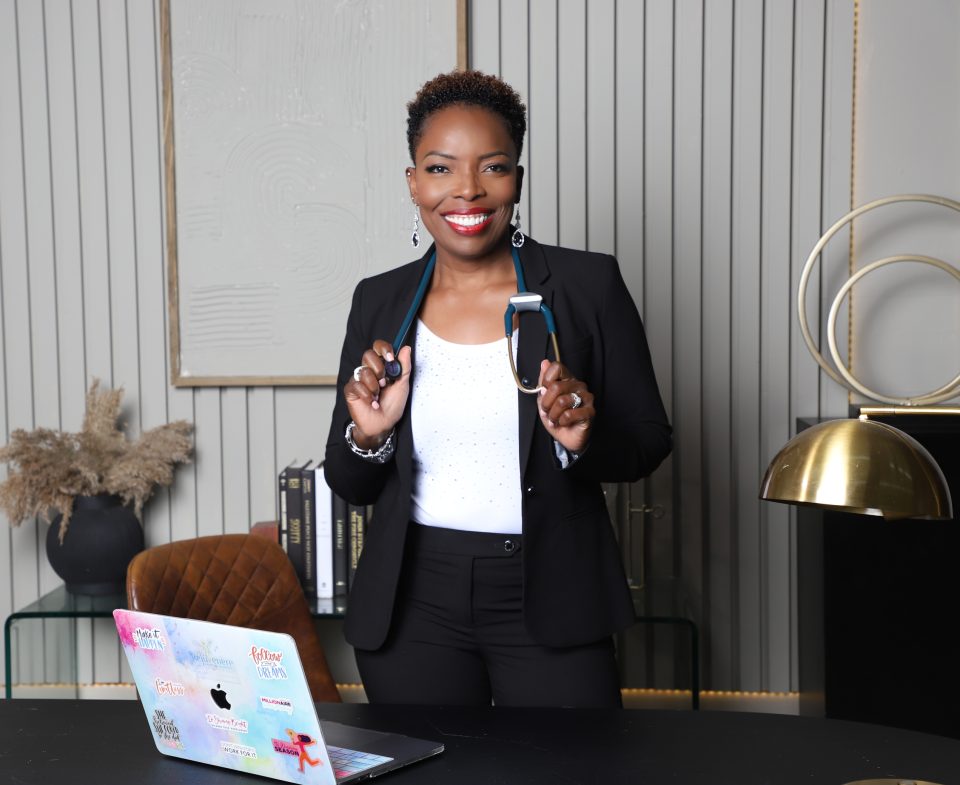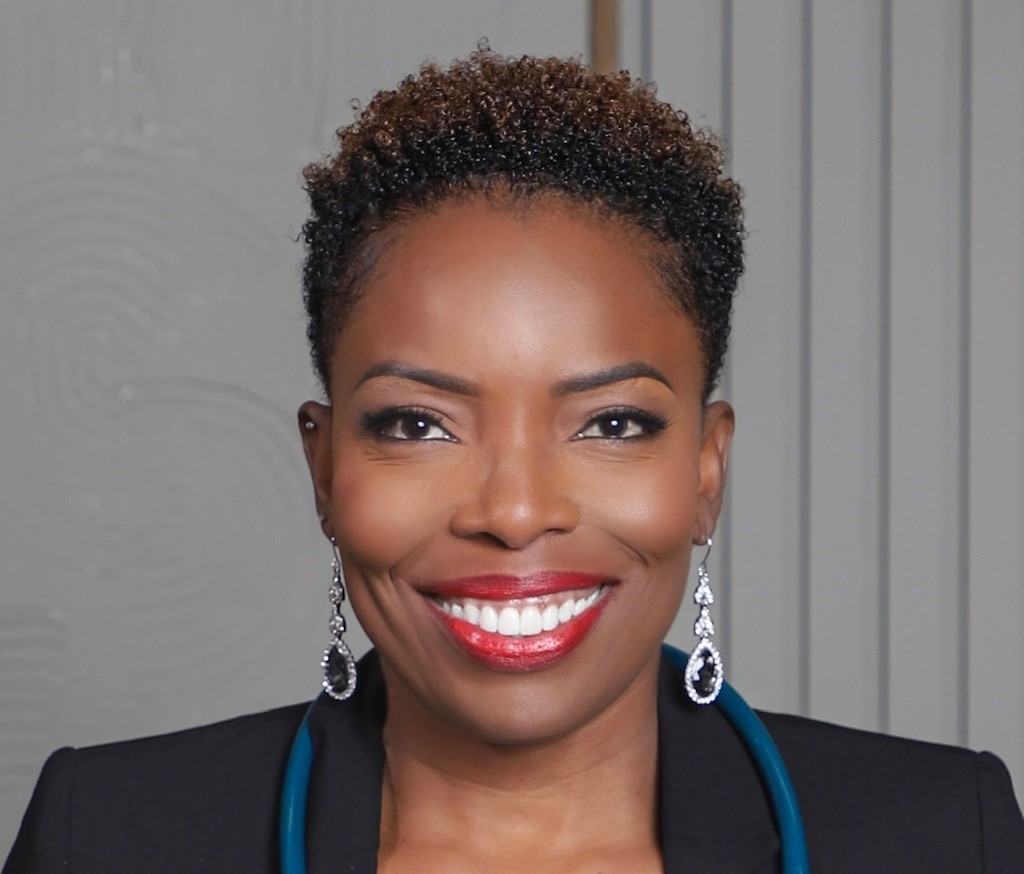In the wake of the 2008 financial crisis, Dr. Donna Patterson found herself at a crossroads that would ultimately transform her life. What initially seemed like a devastating setback, losing her banking job after fifteen years in the industry, became the push she needed to pursue her longtime dream of becoming a healthcare provider.
“I thought it was the worst thing that had happened to me,” Dr. Patterson reflects, “but looking back, I said it was the best thing that had happened to me, because it allowed me to step into this career that I believe I was born to do.”
Her story represents more than just a career pivot; it illuminates how economic upheaval can sometimes lead to unexpected personal fulfillment and shows the critical importance of healthcare providers who understand the communities they serve.
The catalyst for change
Dr. Patterson’s journey toward healthcare began long before the recession forced her hand. As a young girl, she witnessed her grandfather’s battle with cancer, feeling helpless as he suffered.
“I would visit him in the hospital, and I felt useless for the most part, because there’s nothing I could do personally to help him,” she explains. “But I saw these nurses that were taking care of him, and I was inspired because I wanted to be able to make a difference in somebody’s life.”
Despite this early calling, practical considerations kept her in banking for years. “I would apply to nursing school,” she admits, “but I never followed through on the application. It would just stop when they asked me for documents.”
The economic crash of 2008-2009 eliminated those hesitations. Without her banking job, Patterson had both the motivation and opportunity to finally pursue nursing education. She began with an associate’s degree, then systematically added a bachelor’s, master’s, and eventually a doctoral degree to become a cardiology nurse practitioner.
Healthcare through an African American woman’s lens
Dr. Patterson’s perspective as an African American woman has profoundly shaped her approach to healthcare. Her experience illuminates the systemic issues that affect many communities of color.
“It has shaped my perspective on how patients are treated,” she notes. “It has shaped my perspective on the diseases that affect the African American community like the diabetes, the high blood pressure, the heart attack and stroke.”
She points to two critical factors driving these disparities: “It stems from obesity, of course, but also it stems from just lack of access. People are not being educated, especially the underserved communities. They’re not given the resources that they need.”
Dr. Patterson experienced these healthcare access challenges firsthand while in nursing school, when she had to reduce her working hours and consequently lost her health insurance.
“I had a patient say to me one day, ‘You’re so lucky, you guys work here, you must have great insurance,’ not realizing I am one of those people. I’m providing care, but I myself did not have insurance, and I could not afford healthcare, even though I work in the system.”
A reactive system failing its patients
Working within hospital settings, Dr. Patterson observed a fundamental flaw in American healthcare, its reactive rather than preventive approach.
“In the hospital setting I see that we’re more reactive in the way we treat our patients,” she explains. “You come in and you’re sick, we will take care of you, but we’re not teaching you how to prevent these diseases.”
She describes this approach as merely placing “a Band-aid on your problem”, treating symptoms with medications without addressing root causes or providing education to prevent future illness. “My head hurts, you get a pill, my back hurts, you get a pill. I can’t sleep, you get a pill.”
The pandemic’s wake-up call
The COVID-19 pandemic provided a stark turning point in Dr. Patterson’s career. Witnessing how the virus disproportionately affected communities of color, particularly those with underlying conditions like diabetes, hypertension, and high cholesterol, she felt compelled to take more direct action.
“The milestone for me was seeing that people who were African American, people who had high blood pressure, diabetes, high cholesterol were considered high risk for dying from COVID,” she explains.
This realization prompted her to establish Rejuvenir Health Med Spa, a business aimed at helping people manage their weight and improve overall health to reduce their risk of chronic diseases. Though only operational for a year and a half at the time of the interview, the spa has already helped multiple clients lose significant weight, some more than 50 or 60 pounds.
Beyond physical transformation
Dr. Patterson’s approach to healthcare extends beyond physical health; she recognizes the emotional and psychological components of wellness. Her Med Spa has become a place where clients feel comfortable discussing their struggles.
“People come in there and they cry,” she explains. “People are going through so much, mentally, emotionally, and you just don’t know just by looking at a person, but when you sit down and start talking to someone, and they just start opening up and crying.”
She recounts the story of a 17-year-old client who lost 57 pounds and proudly declared, “I won’t be the fat friend anymore.” For Dr. Patterson, these moments of transformation, seeing clients gain confidence, reduce pain, and improve mobility, provide tremendous validation for her career change.
Advice for future healthcare professionals
For those considering a similar path to board certification, Dr. Patterson’s experience offers valuable guidance. She recommends dedicating focused study time, in her case, eight hours daily for six weeks, while also utilizing every spare moment.
“Every minute counts,” she advises. “If you have a 15-minute time block that you are in between classes, or you have some downtime, utilize that time to read something. You could go over one question. You could do Quizlet and do a 15-minute quick review.”
This approach stands in stark contrast to time spent “surfing their phone and surfing social media,” which she sees as missed opportunities for learning.
Dr. Patterson also emphasizes the importance of review courses. She specifically mentions the Leik Review, a five-day course that helped prepare her for her certification exam.
The value of purpose-driven work
When asked if her dramatic career change was worth the challenges, student loans (“my student loan is a house payment”), and years of study, Dr. Patterson responds without hesitation, “Oh, absolutely! I would do it again if I have to.”
The satisfaction she derives from making meaningful differences in people’s lives far exceeds what she experienced in banking. And beyond personal fulfillment, she notes the practical advantage of healthcare as a career: its stability.
“Healthcare is always going to be around. People are always going to be sick, and people will always need help,” she explains. “If you were to compare healthcare to banking, the economy crashed, you don’t have a job, you’re always going to have a job when it comes to healthcare.”
For Dr. Patterson, what began as an economic necessity has blossomed into a purposeful calling that combines her business acumen with her passion for helping others, proving that sometimes life’s greatest setbacks can lead to its most rewarding journeys.



















